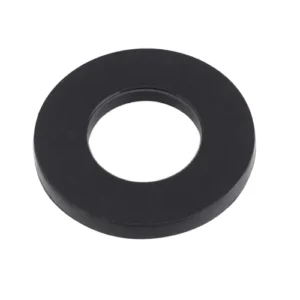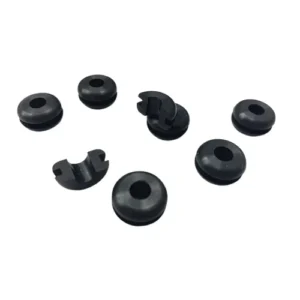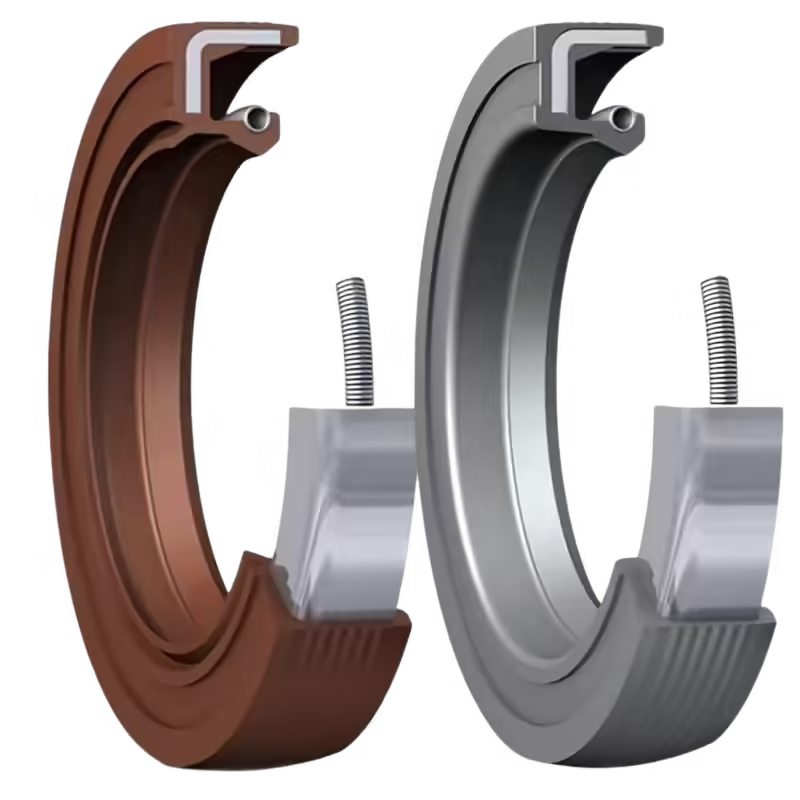Choosing Custom EPDM Gaskets for Insulating and Sealing
Introduction
In the realm of industrial sealing and insulation, selecting the right gasket material is crucial for ensuring longevity and performance. Among the various materials available, EPDM (Ethylene Propylene Diene Monomer) gaskets stand out due to their versatile properties and wide range of applications. This article serves as a comprehensive guide to choosing the right custom EPDM gaskets, exploring their advantages, disadvantages, types, and key considerations to help you make informed decisions for your specific needs.


Overview of EPDM Gaskets
EPDM gaskets are crafted from a synthetic rubber known for its exceptional durability and resilience. Ethylene Propylene Diene Monomer (EPDM) rubber is renowned for its ability to withstand harsh environmental conditions, making it a preferred choice across various industries such as automotive, construction, and electronics. Its unique molecular structure provides excellent resistance to UV rays, ozone, and extreme temperatures, ensuring reliable performance in both indoor and outdoor applications.
The Role of EPDM in Insulation and Sealing
EPDM’s significance in insulation and sealing cannot be overstated. Its ability to maintain flexibility and integrity under extreme conditions makes it ideal for applications that require effective thermal insulation and airtight or watertight seals. Whether it’s sealing windows and doors in construction or insulating electrical components, EPDM gaskets provide a dependable barrier against moisture, chemicals, and temperature fluctuations.
Purpose of the Article
This article aims to guide you through the process of selecting the right custom EPDM gaskets for your specific applications. We will discuss the advantages and disadvantages of EPDM, explore the various types available, and outline key factors to consider when making your choice. Additionally, we will delve into the applications of EPDM gaskets, the importance of selecting a reliable manufacturer, and the essential aspects of testing and quality control.
1. Advantages of EPDM Gaskets for Insulation and Sealing
Exceptional Weather Resistance
One of EPDM’s standout features is its exceptional resistance to weathering. It can withstand prolonged exposure to UV radiation, ozone, and extreme temperatures without degrading. This durability makes EPDM gaskets ideal for outdoor and exposed environments, ensuring long-term performance and reducing the need for frequent replacements.
Acid and Alkali Resistance
EPDM exhibits remarkable resistance to acids and alkalis, making it highly suitable for industries that handle strong chemical substances. This property ensures that EPDM gaskets maintain their integrity and sealing capabilities even in harsh chemical environments, providing reliable protection against leaks and corrosion.
Water and Moisture Resistance
The inherent water resistance of EPDM makes it an excellent choice for waterproof sealing applications. Whether it’s preventing moisture ingress in construction joints or ensuring watertight seals in automotive components, EPDM gaskets effectively block water and moisture, safeguarding the integrity of structures and equipment.
Superior Chemical Resistance
Beyond acids and alkalis, EPDM is resistant to a wide range of chemicals, including dilute acids, alkalis, and various industrial solvents. This broad chemical resistance ensures that EPDM gaskets remain stable and effective in diverse industrial settings, from chemical processing plants to manufacturing facilities.
Electrical Insulation Properties
EPDM’s ability to prevent electrical conductivity adds another layer of utility, particularly in electrical and electronic applications. EPDM gaskets can insulate and protect electrical components and systems from moisture, dust, and other contaminants, enhancing the safety and reliability of electrical installations.
2. Disadvantages of EPDM Gaskets
Limited Oil Resistance
While EPDM excels in resisting acids, alkalis, and weathering, it has poor resistance to oils and petroleum-based products. This limitation makes EPDM gaskets unsuitable for applications involving exposure to oils, greases, or hydrocarbons, where alternative materials might be more appropriate.
Higher Price Point
Custom EPDM gaskets typically come with a higher price tag compared to other rubber materials. This increased cost can be a significant consideration for budget-conscious projects, especially when large quantities or complex designs are required. However, the long-term durability of EPDM often justifies the initial investment.
Not Suitable for High-Pressure Applications
EPDM gaskets may not perform optimally in high-pressure environments due to material limitations. In scenarios where gaskets are subjected to extreme pressures, alternative materials with higher compressive strength and pressure resistance may be necessary to ensure effective sealing.
Limited Flexibility at Low Temperatures
In extremely cold conditions, EPDM can lose some of its elasticity, reducing its effectiveness in certain sealing applications. This loss of flexibility can compromise the gasket’s ability to maintain a tight seal, making EPDM less suitable for applications exposed to severe low temperatures.
3. Key Factors to Consider When Choosing Custom EPDM Gaskets
Material Specifications
Selecting the right EPDM formulation is crucial based on your application’s specific environmental, temperature, and chemical exposure requirements. Different grades of EPDM offer varying levels of resistance and flexibility, so it’s essential to match the material properties with the demands of your application to ensure optimal performance.
Size and Shape Requirements
Determining the correct dimensions and design features for your custom gasket is essential for achieving a proper fit and effective seal. Factors such as thickness, width, and diameter must be carefully considered to ensure that the gasket meets the specific needs of your application, whether it’s for a standard component or a uniquely shaped part.
Compression and Sealability
Evaluating the gasket’s compression set and its ability to create a tight seal under varying pressures is vital. A gasket that maintains its shape and sealing capability under compression ensures consistent performance, preventing leaks and maintaining insulation over time.
Customization Options
EPDM’s versatility allows it to be tailored into custom shapes, sizes, and profiles to meet specific needs. Whether you require non-standard sizes or complex designs, custom EPDM gaskets can be engineered to fit unique applications, providing a precise and effective sealing solution.
4. Different Types of EPDM Gaskets
Standard EPDM Gaskets
Standard EPDM gaskets are commonly used for general sealing applications across various industries, including construction, automotive, and industrial environments. These gaskets are readily available in standard sizes and shapes, offering reliable performance for everyday sealing needs.
Custom EPDM Gaskets
Custom EPDM gaskets are designed and manufactured to meet specific industry requirements. Manufacturers like DRO specialize in creating bespoke solutions, including non-standard sizes and complex designs, ensuring that the gasket precisely fits the unique demands of your application.
Fabric Reinforced EPDM Gaskets
For high-strength applications, fabric-reinforced EPDM gaskets offer enhanced durability and resistance to deformation. The fabric reinforcement provides additional structural support, making these gaskets suitable for environments where mechanical strength and longevity are paramount.
Expanded EPDM Gaskets
Expanded EPDM gaskets are ideal for filling large gaps. These gaskets expand to fit the sealing space, providing a secure and adaptable seal. They are commonly used in construction and insulation applications where significant gaps need to be effectively sealed.
Expanded Closed-Cell EPDM Foam Gaskets
Typically used for thermal insulation and vibration dampening applications, expanded closed-cell EPDM foam gaskets offer excellent thermal resistance and cushioning properties. Their closed-cell structure prevents moisture ingress and enhances their insulating capabilities.
5. Applications of Custom EPDM Gaskets for Insulation and Sealing
Construction and Building
In the construction and building sector, EPDM gaskets are used for sealing windows, doors, roofing systems, HVAC units, and waterproofing applications. Their weather resistance and durability ensure that these critical components remain sealed against moisture and environmental elements.
Automotive Industry
The automotive industry relies on EPDM gaskets for sealing engines, doors, windows, and underbody components. EPDM’s resistance to heat, moisture, and various automotive fluids makes it a reliable choice for maintaining vehicle integrity and performance.
Electrical and Electronics
EPDM gaskets play a crucial role in insulating and sealing electrical components and connections from moisture and dust. Their electrical insulation properties help protect sensitive electronics, enhancing the safety and reliability of electrical systems.
Industrial Equipment
In industrial settings, EPDM gaskets are used to seal pumps, valves, machinery, and equipment exposed to harsh chemical or weather conditions. Their superior chemical and weather resistance ensures that industrial equipment operates efficiently and remains protected from leaks and environmental damage.
6. Selecting a Reliable Manufacturer for Custom EPDM Gaskets
Experience and Expertise
Choosing a manufacturer with proven experience in custom EPDM gasket production is essential for ensuring quality and reliability. An experienced manufacturer understands the intricacies of EPDM materials and can provide expert guidance in selecting the right gasket for your application.
Certifications and Compliance
Manufacturers should hold relevant certifications such as ISO and comply with industry-specific standards to guarantee the quality and compliance of their products. Certifications ensure that the gaskets meet stringent quality control measures and regulatory requirements, providing peace of mind regarding their performance and safety.
Customization Capabilities
The ability to produce tailored solutions based on client needs is a critical factor when selecting a manufacturer. Companies like DRO offer extensive customization options, including material grade, size, and design complexity, ensuring that your custom EPDM gasket precisely matches your specifications.
Customer Support and Service
Comprehensive customer support, from consultation and design to prototyping and after-sales assistance, is vital for a successful partnership with a gasket manufacturer. Reliable support ensures that any issues are promptly addressed and that the final product meets your expectations.
7. Testing and Quality Control of EPDM Gaskets
Material Testing
Ensuring that EPDM meets the required specifications for temperature, chemical resistance, and physical properties is fundamental. Rigorous material testing verifies that the EPDM formulation is suitable for the intended application, providing confidence in its performance.
Performance Testing
Evaluating EPDM’s compression set, sealing effectiveness, and long-term durability in real-world conditions is essential for confirming its reliability. Performance testing simulates the actual operating environment, ensuring that the gasket will perform as expected under various stresses and conditions.
Certifications and Compliance
Compliance with international standards, such as ASTM and ISO, as well as industry-specific regulations, ensures that EPDM gaskets perform as expected. Adhering to these standards guarantees that the gaskets meet quality and performance benchmarks, providing assurance of their suitability for critical applications.
8. Common Challenges and Solutions in EPDM Gasket Selection
Handling Extreme Temperature Variations
Selecting the correct grade of EPDM that can withstand extreme temperatures without degrading is crucial. Different EPDM formulations offer varying levels of thermal resistance, so it’s important to choose a grade that maintains its properties under the specific temperature ranges of your application.
Dealing with Chemical Exposure
Choosing EPDM formulations based on the type and concentration of chemicals involved in the application is essential. Understanding the chemical compatibility of EPDM ensures that the gasket will resist degradation and maintain its sealing capabilities in chemically aggressive environments.
Ensuring a Tight Seal
Proper fitting and seal integrity are vital for preventing leaks. Techniques such as precise measurement, appropriate compression, and selecting the right gasket design help ensure that the gasket creates a tight and reliable seal, particularly in custom applications where standard solutions may not suffice.
9. Cost Considerations for Custom EPDM Gaskets
Factors Influencing Cost
Several factors influence the cost of custom EPDM gaskets, including material grade, size, complexity of design, and order volume. High-grade materials and intricate designs typically increase the cost, while larger order volumes can sometimes reduce the per-unit price through economies of scale.
Cost vs. Longevity
While EPDM gaskets may have a higher initial cost compared to other rubber materials, their durability and resistance to harsh environments often result in long-term savings. The extended lifespan and reduced need for replacements make EPDM a cost-effective choice over time, providing reliability and minimizing downtime.
Conclusion
Summary of Key Points
EPDM gaskets offer numerous advantages for sealing and insulating applications, including exceptional weather resistance, chemical resistance, and electrical insulation properties. However, they also come with certain disadvantages, such as limited oil resistance and higher costs. Understanding the different types of EPDM gaskets and key factors in selecting the right one is essential for achieving optimal performance.
Final Recommendation
When selecting a custom EPDM gasket, it is crucial to consult with experts who can guide you in choosing the right material, design, and manufacturer to meet your specific needs. By doing so, you ensure that your gaskets provide reliable performance and durability, enhancing the overall efficiency and safety of your applications.
Contact Information
For further inquiries or to request a quote, please visit DRO Rubber.
- WhatsApp: +0086 15815831911
- WeChat: +0086 13784044874





